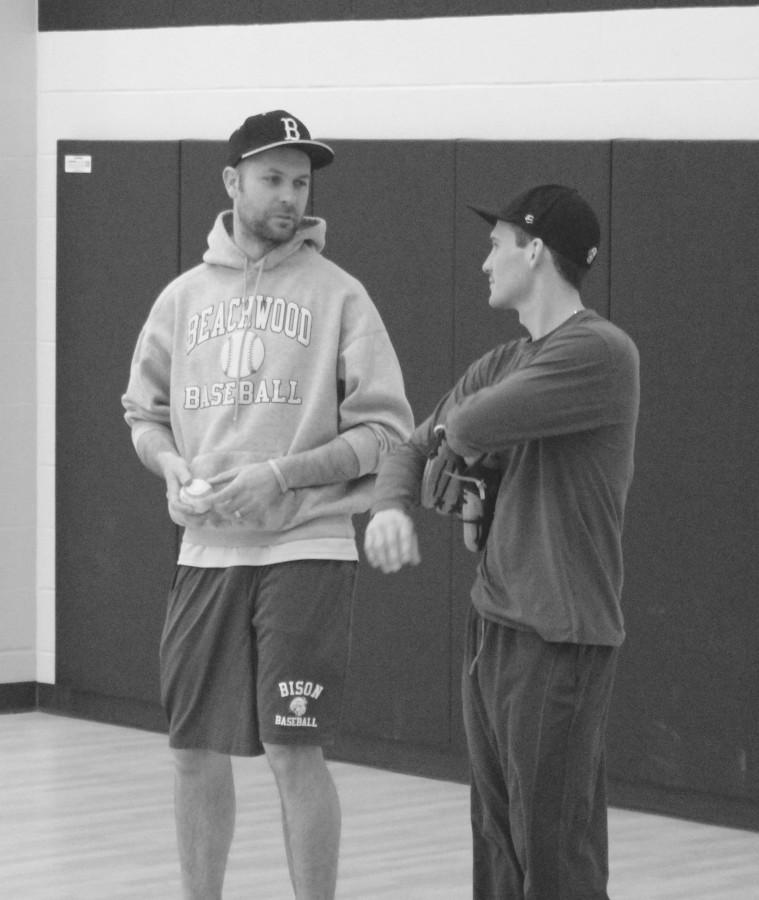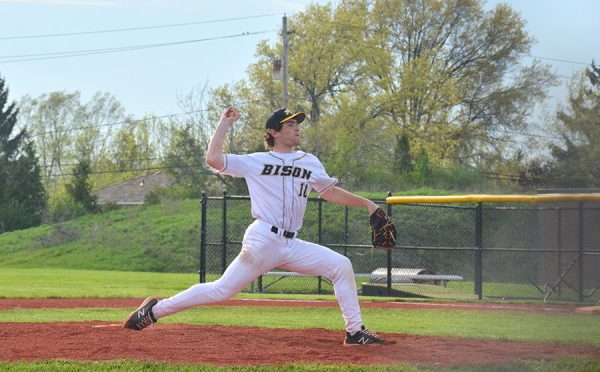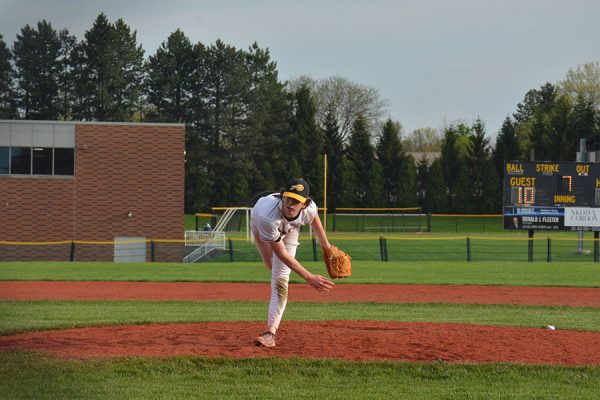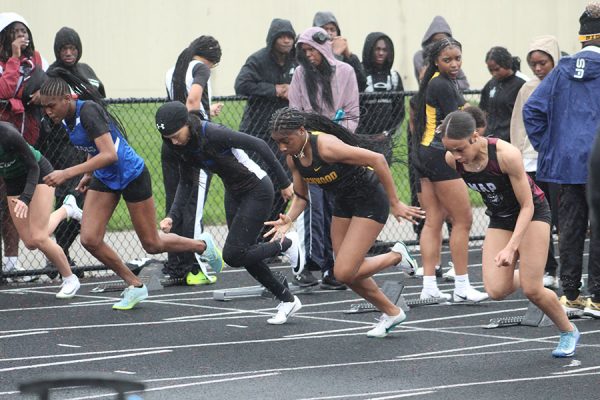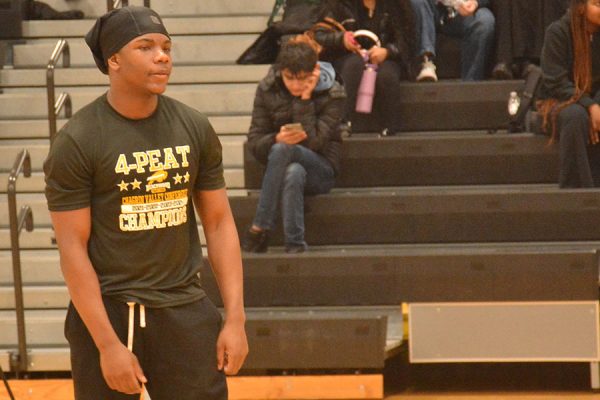Dallas Puskar: From the Mound to the Dugout
The moment when something you love more than anything is taken away from you is the worst feeling in the world.
Beachwood pitching Coach Dallas Puskar had this feeling when he tore a tendon in his bicep while pitching for the Chillicothe Paints in 2006. After the injury playing had become unbearable.
When Puskar went to the doctor, he learned the extent of his injury.
“It was one of the worst feelings I have ever had,” Puskar said, describing how it felt to learn he would not be playing competitive baseball again.
“(Baseball) is something I’ve grown up with. I had been playing since I was knee high in boots,” he said.
Puskar pitched for the Mayfield Wildcats when he was in high school. He was considered a standout player in both baseball and soccer. After graduating in 2002, he continued his athletic and academic career at Denison University, where he set records for most strikeouts and most wins in a season.
For several years, Puskar played in the Summer Collegiate League for the Lima Locos and Ohio Copperheads. His final season was in the Frontier League with the Chillicothe Paints in 2006.
He could have treated the injury with an elective surgery, but decided the risks were not worth the benefits.
“If I had the surgery, I probably could have played another year or two.” he said. “[Minor league baseball] isn’t corporate America. I didn’t have any money. I never would have had a long standing career on that. Even though it was a low-risk surgery, there are things [that could go wrong].”
After Puskar’s baseball career ended, he went through a year of soul-searching.
“I was in a funk,” he said. “I had the thing I loved most in life, and it was taken away from me. When you are 22 years old [it is hard] to work through that decision.”
Eventually Puskar found a path, pursuing a career in special education and transferring his love of baseball into coaching.
“The [desire] to be in the game never went away, so the next best thing was trying to coach,” he said. “Before BHS, I coached a 13u, (13 and under), travel baseball team. I coached [Beachwood alumni] Max Siegel, Brett Dubin and Adam Moss. I was able to keep around the game I loved so much,” he said.
“I was born with the ball in my hand,” Puskar said. “I’m just passionate about it. All of my uncles played, [my] dad coached and my whole family played at a high level. I’m very passionate about the game and it has always been in me.”
Puskar’s talents as a pitching coach are greatly admired.
¨Dallas is one of the best pitching minds I have ever worked with,” head coach Todd Butler said. “He provides great insight for players during practice and studies his players well. This gives me, as the head coach, an opportunity to work all across the board because I trust what he does.”
“He also is great in game,” Butler continued. “He knows the tendencies of his pitchers better than anyone and provides timely insights for better decisions to be made.”
“He has had some great experiences from playing college ball and making it into a major league farm system,” sophomore Josh Bialosky said, “…so he knows what it will take for us to get there.”
Puskar feels that becoming a great coach can be as hard as becoming a great player.
“To be a coach you need a competitive nature. Life is competitive, to be the best person, husband, dad you can be you have to work hard for it,” he said. “Some [people are] born with ability, but you have to work hard because someone with the same talent is working as hard or harder than you.”
Both coaches have very similar feelings about how the game should be played and coached.
“The biggest thing in baseball is that you fail more often than you succeed, and with the failure you have to be able to connect that to real life, and through those failures you are able to learn from them and become a better person,” Butler said.
Butler and Puskar also have a great dynamic while coaching.
¨Baseball is a game of endless knowledge,” Butler said. “Techniques and styles vary, and Dallas and I respect one another to the point where we learn from each other. I have learned how to better handle a pitching staff and understand better when in game decisions need to be made.”
Puskar also has a very busy life outside of baseball and Beachwood. In addition to coaching, he teaches kids with disabilities at an inner city school and also works construction. He is the father to infant twin daughters and one older daughter.
“My life is extremely hectic,” Puskar said.
“When the kids go to sleep, you need to do what you have to do for your job and the kids for the next day,” he said.
Puskar copes with the stress in a very unique way.
“Being on the bump in middle of the field is the calmest place in the world for me; I close my eyes and think of that every time I am stressed out by life,” he continued.
“But my kids, as stressful as they are, they are the greatest joy I could ever ask for in my life and they make everything worth living for on a daily basis,” he said.
“I really like to live by a philosophy and hierarchy that one of my coaches told me,” he said. “God first, family second, academics third and baseball fourth.”
In his fifth year coaching at Beachwood, Puskar doesn’t want to be anywhere else.
“I’ve built great relationships with players and coaching staff…,” he said. “I like growing with players over the four years they are here, and I love being part of the Beachwood baseball family.”
Ultimately, Puskar is content with the path his life has taken since his professional baseball career ended.
“Everything happens for a reason…If I didn’t get hurt, I might still be playing, but I wouldn’t have met my wife and have three beautiful daughters,” he said.
The writer is a member of the Beachwood Bison baseball team.
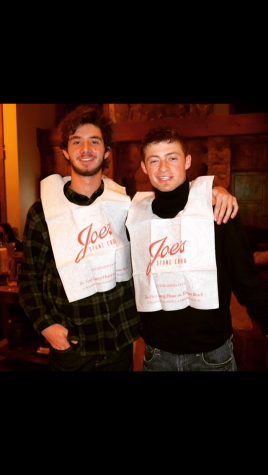
Aden Stern (pictured at left with his cousin Ashton Finegold) is a junior. He is the online sports editor and has been writing for the Beachcomber since...



